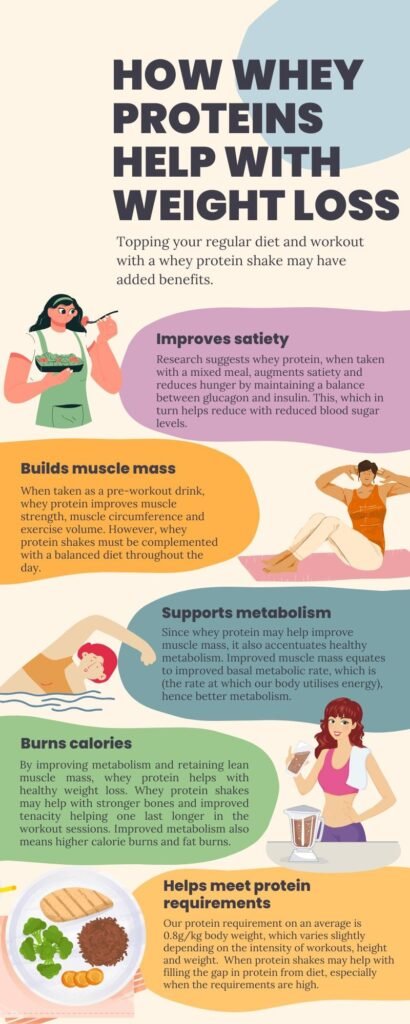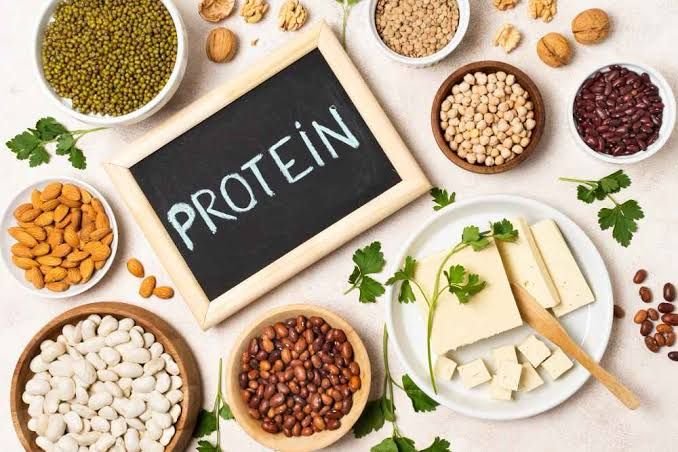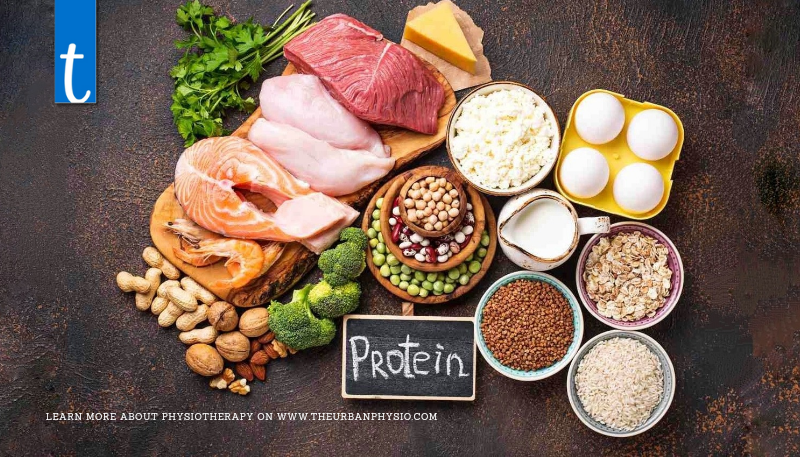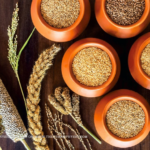When it comes to weight loss and muscle maintenance, high-protein diets have consistently emerged as a popular and effective strategy. Protein plays a vital role in our body’s overall functioning, from supporting muscle repair to balancing hormones. In this blog, we’ll explore how a high-protein diet can be the key to achieving your weight loss goals while preserving muscle health.
The Role of Protein in Weight Loss
One of the most significant benefits of a high-protein diet is its effect on weight loss. Protein helps in several ways:

1. Satiety and Reduced Cravings: High-protein foods are more satiating than carbohydrates and fats, which means you feel full for longer. This can help reduce unnecessary snacking and overeating throughout the day, leading to fewer calories consumed overall. When you eat protein-rich meals, hormones like peptide YY (PYY), which reduces appetite, are increased, while the hunger hormone ghrelin is suppressed.
2. Thermic Effect of Food (TEF): The body burns more calories digesting protein compared to fats and carbohydrates. This phenomenon, known as the thermic effect of food, means that a higher protein intake can help boost your metabolism slightly and aid in weight loss.
3. Reduced Caloric Intake: Protein’s satiating effects can naturally lead to a reduction in total calorie intake. Dieters who focus on consuming more lean proteins, such as chicken, fish, and tofu, often find themselves eating less overall without feeling deprived.
How Protein Helps Maintain Muscle Mass
A common challenge during weight loss is maintaining muscle mass. When you’re in a calorie deficit (eating fewer calories than your body needs), it’s easy for the body to break down muscle for energy, especially if your protein intake is low. This is where high-protein diets shine.
1. Muscle Repair and Growth: Protein is made up of amino acids, the building blocks of muscle tissue. When you consume adequate amounts of protein, it provides your muscles with the essential nutrients they need to repair after exercise and to grow stronger. For individuals following weight-loss programs, maintaining muscle mass is critical, as muscles help burn more calories at rest, further aiding in weight loss.
2. Prevention of Muscle Loss: Research shows that individuals consuming high-protein diets are more likely to retain muscle mass during weight loss. This is particularly important because muscle is metabolically active tissue, meaning it burns more calories than fat, even when you’re at rest. A loss of muscle mass could slow down metabolism, making weight loss more challenging.
3. Enhanced Recovery: For those combining their weight-loss efforts with strength training or exercise, a protein-rich diet aids in faster muscle recovery. This allows you to train harder and more frequently without risking injury or fatigue, thereby improving overall fitness levels and helping with fat loss.
How Much Protein Do You Need?
To reap the benefits of a high-protein diet, it’s important to understand how much protein you should be consuming. The general recommendation for those aiming to lose weight while preserving muscle mass is to consume between 1.2 to 2.2 grams of protein per kilogram of body weight. For example, a person weighing 70 kg (about 154 pounds) should aim for approximately 84 to 154 grams of protein per day, depending on their activity level.
For athletes or people engaged in regular strength training, the upper end of this range is recommended to ensure muscle repair and growth.
Best Sources of Protein for Weight Loss
Not all protein sources are created equal. For a high-protein diet that supports both weight loss and muscle preservation, focus on the following lean protein options:

- Lean Meats: Chicken breast, turkey, and lean cuts of beef or pork.
- Fish and Seafood: Salmon, tuna, shrimp, and cod.
- Eggs: A high-quality protein that’s versatile and easy to incorporate into meals.
- Plant-Based Proteins: Beans, lentils, chickpeas, and quinoa for those following plant-based diets.
- Dairy: Low-fat options like Greek yogurt, cottage cheese, and milk.
- Protein Powders: Whey or plant-based protein powders can be an easy way to boost your intake if you struggle to get enough from whole foods.
How to Incorporate More Protein Into Your Diet
- Breakfast: Start your day with a protein-rich breakfast like scrambled eggs, Greek yogurt with chia seeds, or a protein smoothie.
- Snacks: Opt for snacks like hard-boiled eggs, a handful of nuts, or cottage cheese to keep you full between meals.
- Lunch and Dinner: Build your meals around protein sources, such as grilled chicken, baked fish, or tofu, and pair them with plenty of vegetables for a balanced plate.
A high-protein diet doesn’t mean you have to cut out other essential food groups. A balanced approach that includes healthy fats and fiber-rich carbohydrates, like fruits and vegetables, ensures that your body gets the nutrients it needs while staying within your calorie goals.
Common Misconceptions About High-Protein Diets
There are a few myths surrounding high-protein diets that need addressing:
1. Myth: High-protein diets are bad for your kidneys: This is largely a concern for individuals with pre-existing kidney conditions. For healthy individuals, there is no substantial evidence that high-protein diets harm kidney function. However, if you have kidney disease, it’s important to consult a doctor before significantly increasing your protein intake.
2. Myth: You can’t eat carbs on a high-protein diet: Carbohydrates, particularly complex carbs from fruits, vegetables, and whole grains, are essential for energy. A balanced diet that prioritizes protein can still include healthy carbs without hindering weight loss.
Conclusion
A high-protein diet is an excellent approach for those looking to lose weight while preserving muscle mass. By keeping you fuller for longer, boosting metabolism, and aiding in muscle repair, protein is a vital component of any successful weight-loss plan. As with any dietary change, balance is key—incorporate plenty of vegetables, healthy fats, and fiber to maintain overall health and well-being.





